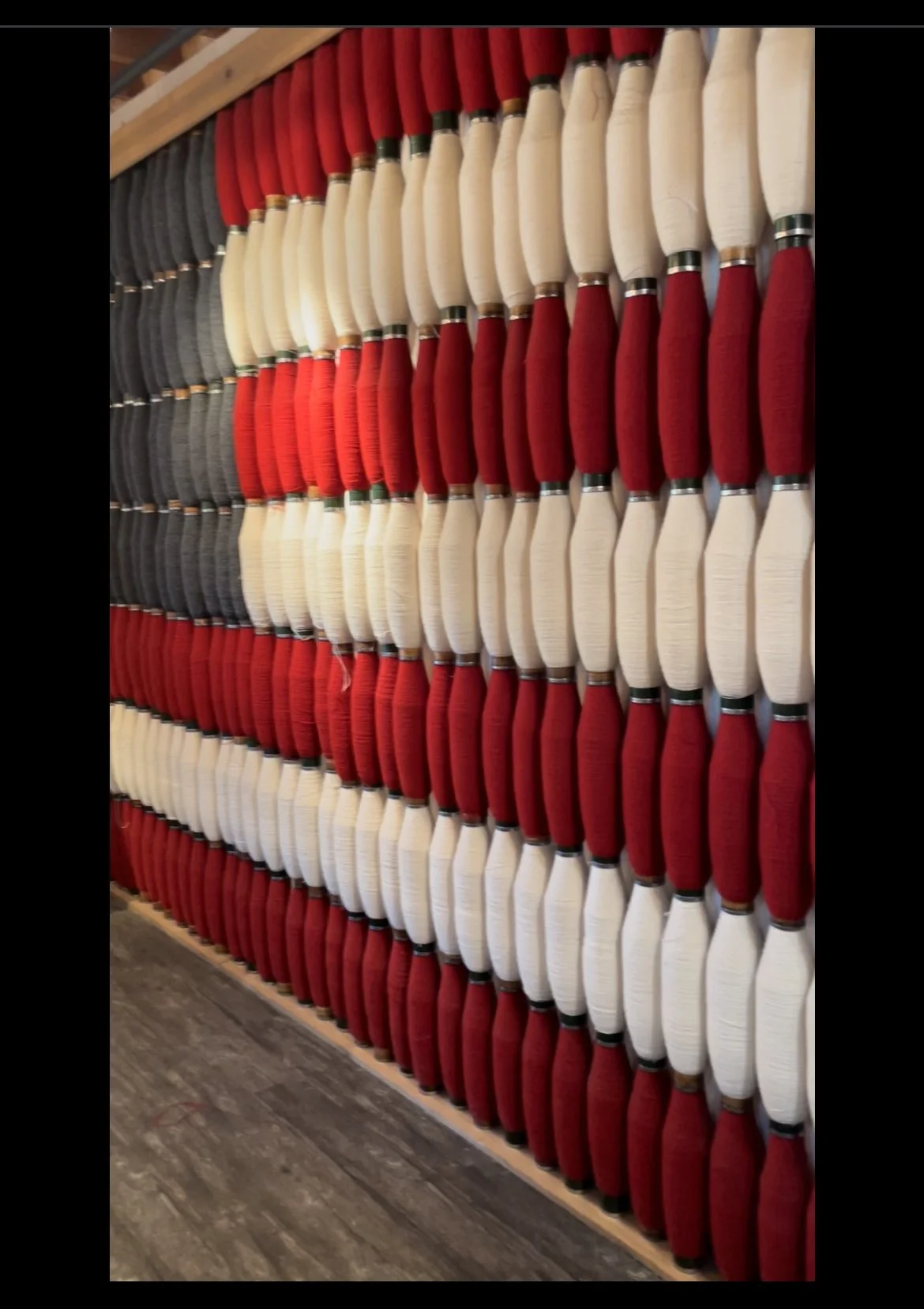Faribault Woolen Mill Tour
Our ASG group of 23 pulled into the parking lot at Faribault Woolen Mill on a hot, muggy day in June. The Faribault store was enticing to browse while we gathered. We were about to learn about one of the last two remaining fabric mills in the United States (the other is Pendelton in the Pacific Northwest. Woolrich, founded in 1845 in Pennsylvania, closed in 2018.)
I enjoy ALL factory tours. It’s just a hoot to see how much work goes into the items we use. This tour was special, as we are people who SEW and LOVE fiber of all kinds. We entered the mill and stepped back in time.
The Mill opened two months after President Abraham Lincoln was assassinated in 1865.
The founder, Carl Henry Klemer was born in Berlin, Germany and emigrated to America in 1845. He found that farming did not suit his fancy and invested in a carding machine to provide local women wool for quilt battings and to spin into yarn.
90% of the Merino wool used at Faribault comes from 3 states-Wyoming, Colorado and Utah. The other 10% comes from New Zealand.
The wool dying process has been perfected to such an extent, that the water remaining after dying a batch of wool is almost perfectly clear.
Contracts to supply blankets to the US military helped to carry FWM through tough times. It’s amazing to think that one’s grandfather in WWI or father in WWII slept under a blanket not that different than the ones made today in Faribault.
There are 22 different steps required to create a blanket. 30 humans touch each blanket before it reaches the shipping department. Lanolin in the wool keeps those hands soft and supple as well protect the wool with anti-fungal properties.
Most of the factory shows its age. One area has been renovated to accommodate a new large, heavy piece of equipment that will greatly speed up production. It is a dryer manufactured in Italy and two Italian gentlemen have been living in Faribault to assemble it and teach Faribault employees to operate it.
Faribault Woolen Mill finds ways to repurpose scraps, turning them into coffee sleeves, bags and pillows. Scraps of wool and yarn are fed back into the machines, very little is wasted.
In March 2022 they acquired Maine-based Brahms Mount — a cotton throw and blanket company. The move led to the company removing the word "woolen" from its name.
And with that, it has now become Faribault Mill.

